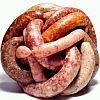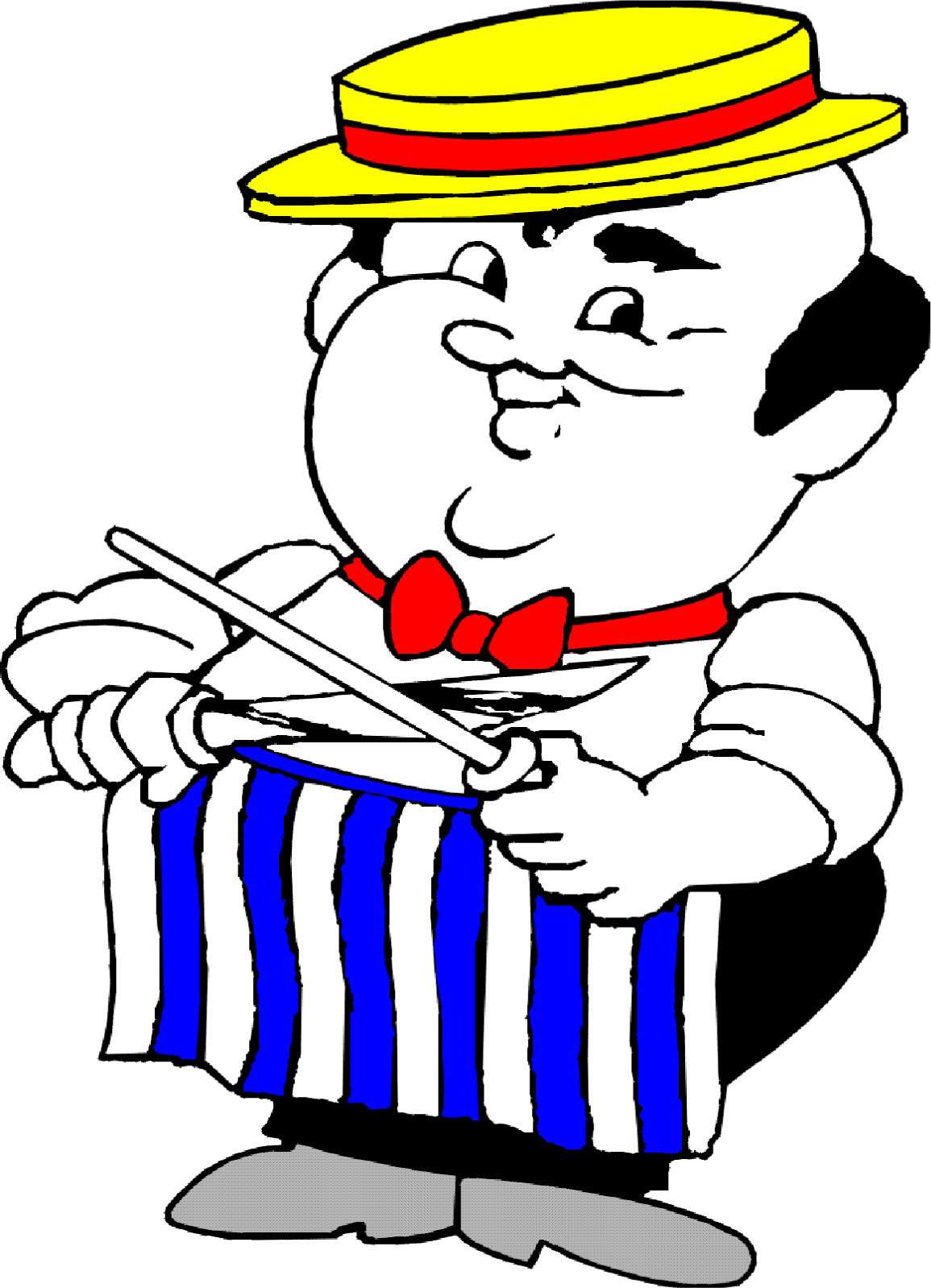Charcuterie. The chef shares his love of cooked and preserved meats, beginning by pairing slices of duck ham with cubes of bacon. He also creates a chicken liver parfait with a spicy coating, French stew pot-au-feu and a ham hock terrine. Raymond also meets charcuterie expert Alex McKay, and travels to Wales to sample James Swift's version of saucisse de Morteau
Tonight 8.30 BBC2: Raymond Blanc on Charcuterie
26 posts
• Page 1 of 2 • 1, 2
Tonight 8.30 BBC2: Raymond Blanc on Charcuterie
Raymond Blanc Kitchen Secrets tonight.
Frank
- Frank
- Registered Member
- Posts: 63
- Joined: Wed Sep 22, 2010 12:23 pm
- Location: Worcs/Gloucs border
Thanks.
I've snagged it for recording.
I've snagged it for recording.
All the best - Ian
"The Earth is degenerating today. Bribery and corruption abound. Children no longer obey their parents, every man wants to write a book, and it is evident that the end of the world is fast approaching." c. 2800 BC
"The Earth is degenerating today. Bribery and corruption abound. Children no longer obey their parents, every man wants to write a book, and it is evident that the end of the world is fast approaching." c. 2800 BC
- Ianinfrance
- Registered Member
- Posts: 730
- Joined: Sun Oct 22, 2006 4:24 pm
- Location: Forgès, France
Ryan C wrote:Thanks Frank!
Wish I had a tv
Should be able to watch it live on iplayer as long as nobody tells the licence fee collectors
I'll have to find alternative ways of watching, iplayer knows I'm not a licence player...
-

Mrs. Northerner - Registered Member
- Posts: 90
- Joined: Sun Sep 12, 2010 3:40 am
- Location: Sydney, Australia
wheels wrote:I have the recipes if you would like me to PM them to you?
Phil
Yes Please
I do need to get out more, but they don't have enough carers to supervise.
- Dave Smith
- Registered Member
- Posts: 50
- Joined: Sat Nov 06, 2010 3:50 pm
- Location: South Wales
All in all I found this program very disappointing
The "pot au feu" wasn't a pot au feu, it was a potée, the chicken liver thingy had nothing to do with charcuterie, and while the ham hock recipe (as demonstrated) was excellent (we've just finished one), the recipe on the Beeb pages was studded with mistakes.
And in fact this wasn't about charcuterie at all It was a few recipes using salted pork products, one of which was misnamed. This hasn't done anything to improve his reputation here.
The "pot au feu" wasn't a pot au feu, it was a potée, the chicken liver thingy had nothing to do with charcuterie, and while the ham hock recipe (as demonstrated) was excellent (we've just finished one), the recipe on the Beeb pages was studded with mistakes.
And in fact this wasn't about charcuterie at all It was a few recipes using salted pork products, one of which was misnamed. This hasn't done anything to improve his reputation here.
All the best - Ian
"The Earth is degenerating today. Bribery and corruption abound. Children no longer obey their parents, every man wants to write a book, and it is evident that the end of the world is fast approaching." c. 2800 BC
"The Earth is degenerating today. Bribery and corruption abound. Children no longer obey their parents, every man wants to write a book, and it is evident that the end of the world is fast approaching." c. 2800 BC
- Ianinfrance
- Registered Member
- Posts: 730
- Joined: Sun Oct 22, 2006 4:24 pm
- Location: Forgès, France
Ian
I don't have the necessary knowledge to know, but I know you do, so can I ask you a question please?
What is classed charcuterie? I always thought that Pate etc was included, or is that just if it's interpreted in a broadert sense? What is actually included if you don't interpret the word in it's broadest sense. i.e. what would a purist class as Charcuterie?
Thanks
Phil
I don't have the necessary knowledge to know, but I know you do, so can I ask you a question please?
What is classed charcuterie? I always thought that Pate etc was included, or is that just if it's interpreted in a broadert sense? What is actually included if you don't interpret the word in it's broadest sense. i.e. what would a purist class as Charcuterie?
Thanks
Phil
-

wheels - Global Moderator
- Posts: 12894
- Joined: Sat Sep 02, 2006 4:29 pm
- Location: Leicestershire, UK
wheels wrote:Ian
I don't have the necessary knowledge to know, but I know you do, so can I ask you a question please?
What is classed charcuterie? I always thought that Pate etc was included, or is that just if it's interpreted in a broader sense? What is actually included if you don't interpret the word in it's broadest sense. i.e. what would a purist class as Charcuterie?
Thanks
Phil
Well it's a French word, so I'll look at the French meaning first.
Literally it's derived from "chair cuit" - cooked meat. So in a sense one could say that any meat product sold cooked could be considered as "charcuterie". However I don't think any chef would really reckon that is a sensible interpretation of the derivation.
A rather odd thing about the French Language is that it is officially defined. The Académie Française defines every word "officially" in the French Language. However, they are always a couple of years behind the times and so new words enter common speech and don't get integrated until the Academy pronounces on it!!!
1 "Produit a base de viande porc, cuit ou salée, comme le jambon, le saucisson, les rillettes ertc. Un plat froid de Charcuterie .(Other meanings have to do with the business).
Translating this therefore.
1 Product based on pork meat, either cooked or salted, like ham, salami, rillettes etc. "A cold plate of charcuterie"
So, in French at least, strictly speaking it's cured and/or cooked pork. Not a beef stew, not chicken liver paté nor beef salami.
However, more loosely, it can reasonably be extended to things made with other meats instead of pork, (ie substituting veal for pork, or duck for it) so I'd not feel I was doing violence to the word in describing a rabbit terrine (coarse minced) as charcuterie. On the other hand I make a very good chicken liver paté myself, but I would feel I was pushing the limits if I were to call it charcuterie. For me that would be offal. (Variety meats, for those on the wrong side of the Atlantic
But if I were to be pedantic about it, then it would be strictly limited to pork.
In English, actually, I don't think that there's much difference from the French meaning. I don't think any English chef, even quite a strict one, would object to calling a kosher version of a frankfurter "charcuterie" and most would jib at the thought of calling a pot au feu (if it's made as it should be, with beef) charcuterie.
Certainly what I was hoping & expecting to see was a 3 star Michelin Chef's take on salting and curing.
Hope that answers your question.
All the best - Ian
"The Earth is degenerating today. Bribery and corruption abound. Children no longer obey their parents, every man wants to write a book, and it is evident that the end of the world is fast approaching." c. 2800 BC
"The Earth is degenerating today. Bribery and corruption abound. Children no longer obey their parents, every man wants to write a book, and it is evident that the end of the world is fast approaching." c. 2800 BC
- Ianinfrance
- Registered Member
- Posts: 730
- Joined: Sun Oct 22, 2006 4:24 pm
- Location: Forgès, France
26 posts
• Page 1 of 2 • 1, 2
Who is online
Users browsing this forum: No registered users and 3 guests


